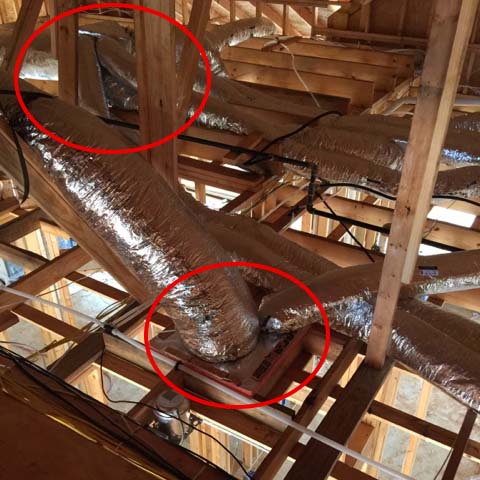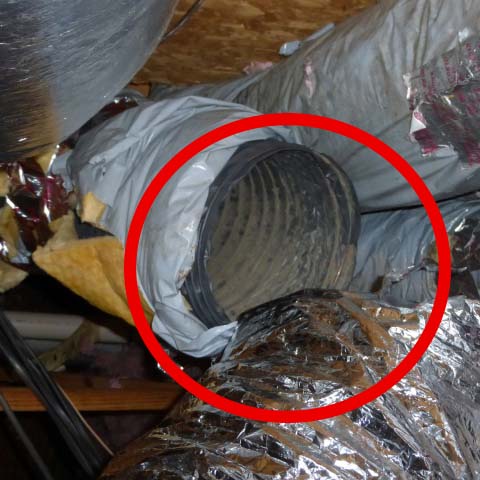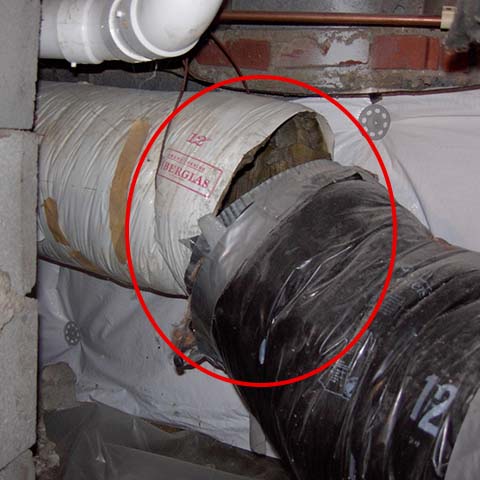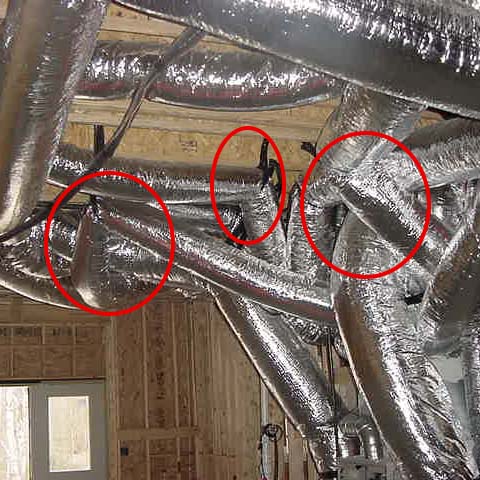Hey Houston! Summer is here and along with it are those large and hefty utility bills at the end of every month. If you live or work in Houston then you know air conditioning is a necessity so it may come as no surprise that when the electric bill comes in at the end of the month and the price has suddenly shot way up when compared to the rest of the year, but does it have to? There are a few things every home or business owner should know and keep in mind when operating their AC system that can really help cut the energy costs down while still keeping our homes or businesses cool. So let's discuss a few ways to cool down our homes and our electric bills.
Air Conditioners and Energy Consumption
Did you know that around 50% of your electric bill this summer is coming from running your air conditioning system and maybe even more? Saving money and cutting the costs on our electric bills during the hot and humid summer months here in Houston is all about smart AC usage and smart AC operation. No, I'm not talking about suffering through the Houston heat and turning the AC system off (although that would save a lot of money) or staying with friends and family - We all know we have to cool our homes and businesses in Houston, but what if there were a few tricks to help keep costs down while still keeping our homes and offices cool? I am going to go over a list of things that are going to impact your comfort and your electric bill. Some are going to cost a little upfront and some are going to be free or relatively cheap to accomplish but have a huge impact on your AC system's run time. So it's important for you, as the home or business owner, to weigh out the cost vs comfort factors and make a decision.
 In a nutshell - The more the air conditioning system runs, the more electricity it consumes, and the larger our electric bill is at the end of the month. So let's cover some of the basics and try to eliminate certain factors or issues that may be leading to unnecessary AC system run time and causing our electric bill to be higher during these summer months. Then, once we are sure our air conditioning system is operating correctly and not being hindered by anything we're doing (or not doing), we'll focus on some of the other things we can do to trim away at our AC system energy usage and really micromanage things. Ready to get started? OK, lets start with the basics:
In a nutshell - The more the air conditioning system runs, the more electricity it consumes, and the larger our electric bill is at the end of the month. So let's cover some of the basics and try to eliminate certain factors or issues that may be leading to unnecessary AC system run time and causing our electric bill to be higher during these summer months. Then, once we are sure our air conditioning system is operating correctly and not being hindered by anything we're doing (or not doing), we'll focus on some of the other things we can do to trim away at our AC system energy usage and really micromanage things. Ready to get started? OK, lets start with the basics:
Step 1) Replace Your Air Filters Every Month.
 The first thing (and the easiest thing to do) is of course keep all the air filters changed regularly during the summer months. You may have heard this before, and some of you may not really know why it's so important to keep the air filters replaced so let's quickly run over just why it's so important to keep air filters regularly replace by exploring what the AC system in your home is trying to accomplish for you and how a dirty air filter can impact your air conditioners performance and in turn any energy bill.
The first thing (and the easiest thing to do) is of course keep all the air filters changed regularly during the summer months. You may have heard this before, and some of you may not really know why it's so important to keep the air filters replaced so let's quickly run over just why it's so important to keep air filters regularly replace by exploring what the AC system in your home is trying to accomplish for you and how a dirty air filter can impact your air conditioners performance and in turn any energy bill.
Air conditioning systems REMOVE heat from our homes (See our How Air Conditioning Works blog post for more info). Many people think the air conditioner simply blows cool air through the vents in our homes like a fan blows air, but really, air conditioners are removing heat from our homes which ultimately make's our home's cool on the inside because the heat has been removed. It's kind of like how we take the trash out of our homes and throw it in a bin outside. No one likes trash piling up in their home, right? Just like no one likes heat building up in their home. The trash can inside our home fills up with trash, we can't put fit anymore trash inside the trash bag and the trash is starting to make our home smell bad, so we take the bag out of the trash can and toss it in the dumpster outside and suddenly our home doesn't smell as bad.
 The AC system takes the heat out of the air in our homes and throw's that heat in the air outside, thus removing the heat from the house which makes the house cooler inside. AC systems do this by sucking all the hot air out of our homes through those tiny air filters. If your air filters are dirty, well guess what? Your air conditioner can't pull the hot air out of your home. It's kind of like trying to put trash in the trash can with the lid still firmly secured on top of the trash can - The trash isn't going to make it inside of the trash can and ultimately it's going to pile up inside your home and get everywhere and cause a mess of things. With a dirty filter, the AC system keeps running and running but since the hot air can't be sucked through the dirty air filter, it builds up in our home and the home stays hot because the heat isn't being taken out of the air. You may even think your AC system is having a problem keeping up with the hot and humid summer heat but really, the system is just having trouble removing the heat out of your home because it can't suck the hot air through your dirty air filter. The result is the system runs all day long as it's trying its hardest to take the heat out of your house but never quite gets there, skyrocketing energy usage and utility bills along with it. So check and replace those air filters every month - The dirtier the filter, the more the system is going to run to suck the heat out of the air in your home, and the higher the electric bill is going to be. For more information on the importance of air filters, we've dedicated an entire blog post to it here: The Importance of changing AC Air Filters.
The AC system takes the heat out of the air in our homes and throw's that heat in the air outside, thus removing the heat from the house which makes the house cooler inside. AC systems do this by sucking all the hot air out of our homes through those tiny air filters. If your air filters are dirty, well guess what? Your air conditioner can't pull the hot air out of your home. It's kind of like trying to put trash in the trash can with the lid still firmly secured on top of the trash can - The trash isn't going to make it inside of the trash can and ultimately it's going to pile up inside your home and get everywhere and cause a mess of things. With a dirty filter, the AC system keeps running and running but since the hot air can't be sucked through the dirty air filter, it builds up in our home and the home stays hot because the heat isn't being taken out of the air. You may even think your AC system is having a problem keeping up with the hot and humid summer heat but really, the system is just having trouble removing the heat out of your home because it can't suck the hot air through your dirty air filter. The result is the system runs all day long as it's trying its hardest to take the heat out of your house but never quite gets there, skyrocketing energy usage and utility bills along with it. So check and replace those air filters every month - The dirtier the filter, the more the system is going to run to suck the heat out of the air in your home, and the higher the electric bill is going to be. For more information on the importance of air filters, we've dedicated an entire blog post to it here: The Importance of changing AC Air Filters.
Step 2) Clean the outside unit's condenser coil.
 The next thing to do is clean the outside unit's condenser coils. You're going to need a water hose, a good nozzle, and yeah, you're going to want to turn the power off to the outdoor unit at the circuit breaker for this one. Don't just turn the thermostat off, turn the breaker off to the outdoor unit just to be safe. After the breaker is shut off, grab your water hose and attach a good nozzle that's going to give you a powerful steady jet stream of water and go and clean all the dirt, dander and tree spunk off the condenser coils outside.
The next thing to do is clean the outside unit's condenser coils. You're going to need a water hose, a good nozzle, and yeah, you're going to want to turn the power off to the outdoor unit at the circuit breaker for this one. Don't just turn the thermostat off, turn the breaker off to the outdoor unit just to be safe. After the breaker is shut off, grab your water hose and attach a good nozzle that's going to give you a powerful steady jet stream of water and go and clean all the dirt, dander and tree spunk off the condenser coils outside.
So wait a minute, why am I cleaning the outdoor unit's coils again? And just what are these coils? If they wanted them clean then why did they stick them outside where they can get dirty? Are you sure I am supposed to be cleaning these this thing?
Like I said earlier, the AC system REMOVES heat out of your home, and all that heat it removes has to go somewhere right? When you take the trash bag out of the trash can in your house, all that trash has to go somewhere as well, right? So you take it outside and dump it in a larger bin or a dumpster. Well, your outdoor unit with the big fan that spins around outside happens to play a pretty important role in that process and it's like the trash dumpster of the scenario described above. Have you ever ran your hand above the outdoor unit as it's running and noticed how hot the air is being blown out of the top of outdoor unit?
Yeah that air is hot. Why is the air coming out of that thing so hot again?
All that hot air you feel coming out of the outdoor unit is the heat that is currently being removed away from and out of your home. That is to say, all that heat you feel being blown out of the outdoor unit used to be inside of your home and, just like how the air filters inside your home have to be nice and clean in order for your AC system to suck the heat out of the air in your home, the outdoor unit's condenser coils have to be clean in order for your AC system to eject all that heat outside of your home. Simple, right?
If you say so...
If the outdoor unit's coil is dirty, it's like taking the trash out of your home and trying to put it in the dumpster with the dumpster's lid still on. If the outdoor coils aren't clean, well guess what? The heat doesn't get tossed out of your home and begins to back up inside your home and once again the AC system keeps running and running all day, and running up the electric bill along with it. So once a year go and clean the outside coils with a water hose, and like I said, make sure you turn the power off for this one at the breaker box. If you're still uncomfortable with the whole process, this happens to be one of the tasks that is included with our preventative maintenance services which you can schedule to have performed at your Houston home or business at any time. Just make sure to have it done because if the outside unit gets too dirty it can harm some of the system's componenets, such as the compressor or outdoor fan motor, in which case you'll need assistance with an AC repair!
Alright, so my filters are replaced and my outdoor coils are clean and the air conditioning system is happy and removing heat much easier than it was before and not having to work as hard to do it, awesome. So what else can I do to help minimize unneccissary AC system run time?
Well now it's time to think about our AC system again and exactly what it's trying to do. The AC system is trying to remove all the heat out of your house, but where is all the heat coming from? Check out the chart to see the primary sources of heat load within our homes:
Uhh.. The heat is coming from my windows?
Yep, you guessed it. The primary heat source is that big bright ball in the sky, our Sun.
Step 3) Keep the heat out.
The Sun is your AC system's enemy and every summer the sun and your AC system are in a constant battle over who gets to dominate the temperature within your home and this mutual dispute somehow all falls into your lap at the end of the month in the form of an electric bill. Theoretically, if we could keep all the heat out of your home, the AC system would never have to run, but accomplishing this task is much harder than it sounds. Some cheap and effective ways of controlling AC system run time can be accomplished by optimizing and minimizing the ways the sun's heat enters our homes and offices. Open doors and windows can quickly allow tonnes of heat to enter our homes where our AC systems have to work to remove it. So keep the windows closed, keep the doors closed, and keep the blinds closed as much as possible during the summer. This helps keep the heat from the sun from entering into your home so your AC system doesn't have to spend time and energy removing it. It's also a good idea to check around for any air gaps, like if a window or door doesn't seal, that's a path for heat to enter the home. So if you have any air gaps in your windows or doors or anywhere really, these all need to be sealed. Caulking and weather stripping are a cheap way to seal gaps and prevent the hot air outdoors from entering into our homes and making our air conditioning systems run.

Another great tip, and this one costs a little more than weather stripping or caulking at the hardware store, are solar screens.
What are solar screens?
You may have seen these on other homes before, they are dark screens that fasten to the outside of a home's window and make it difficult to see into someone's house if your looking at their home from the outside.
Oh yeah, those ugly things.. Well why would anyone want to do that and cover their windows with those hideous looking screens and not be able to see through their windows?
Actually you can see through the window if your looking out of the window from the inside of the house, but never-the-less, visibility isn't the intended purpose of the solar screen. Solar screens are called Solar Screens because they filter out Solar Radiation from our Sun and prevent it from entering into our homes through the windows. IE, they stop heat from entering through the windows. The visibility thing is just an added bonus depending on how you look at it.
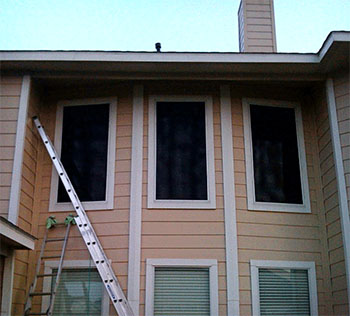
Solar screens basically prevent a large portion of heat from the sun from ever penetrating through the windows and into our homes and they are a great addition to any home that will help keep the heat load down inside by keeping the heat from the sun outside, which will help keep the air conditioner from running as often. Some people don't like the way these things make their house look but I personally like the way they look. Plus, from my perspective, if it makes my home more comfortable and reduces the cost of my electric bill I am all for it. In order to install these things you'll have to measure the outside of your windows and take a trip to the local Home Depot or Lowes and if your windows are a common size they probably have solar screens on hand that you can buy and install yourself. If not, you may have to have them made or hire someone who can, which is going to cost a little more than doing it yourself, but the cost in my opinion far outweighs the energy and comfort expense. Keep in mind if your house has multiple levels, you're going to need a ladder. They even come in different colors if your particularly picky about the looks of solar screens so definitely check these things out, you won't regret it!
Step 4) Humidity control.

Ok, so, now we are at the point where it's about minimizing the heat load that builds up in our homes so our air conditioning system doesn't have to. Heat comes from all kinds of sources, some we can control, and some we can't. Cooking puts off heat, but we all have to eat so that's a factor that's hard to eliminate other than when we cook outside. People put off heat but, it's kind of hard to eliminate that factor too. Well what about showering?
Hold on.. You're not seriously about to ask me to stop showering are you?
We all (hopefully) shower, and if you're thinking I am asking you to stop, please don't. Showering doesn't add that much sensible heat to our homes in the form of air temperature, but what it does add is latent heat in the form of Humidity. If you've ever seen the weather man give his report in the morning you may have heard him say something about the Heat Index. The heat index the weather man is referring to is another way of saying "how it's actually going to feel outside" if you take into account the temperature and the humidity. Since humidity is moisture within the air, it has the ability to trap heat within it, which makes it feel even hotter than what the thermometer is reading. So the thermometer may say its only 90 degrees outside, but if you factor in the 100% humidity, well what do you know it feels like its 102 degrees. Thermometers, like the ones on a thermostat only sense temperature, not humidity, and they control your AC system based on the air temperature set point. But with humidity in your home, the thermostat may say it's 76 degrees inside, but it will feel like 82 degrees with high indoor humidity levels. Well, guess what happens when you shower?
My bathroom mirrors get foggy?
Yep. You release a lot of humidity into your house and that humidity traps heat within it from showering, which later has to be removed by your air conditioning system. Air conditioning systems are designed to cool down the temperature of the air within our homes, not the humidity levels within our homes. So AC systems have a little trouble removing the moisture from the air, and consequently this makes the AC unit run a little longer in order to dehumidify your home as well as cool down the temperature of the air within your home.
So what can I do to lower the humidity added to my home when I shower? Take less showers?? Take group showers?? I'm not into that whole thing..

No, no no.. The answer is simple: Run the bathroom exhaust fans (yeah, that extra light switch next to the.. light switch). Those fan's in your bathroom aren't just there to remove bad odors from your bathroom, in fact, they are there to help reduce the humidity coming from the bathroom!
Ah, so that's what that extra light switch is for..

Yep. So whenever you or someone in your home is showering, run the bathroom exhaust fans. This is going to suck out a large portion of the humidity that was released into the air from showering, which will keep your air conditioner from having to run and perform this task all on it's own (and it costs alot more energy and money to run an air conditioner than an exhaust fan I can assure you).
So run those exhaust fans while taking a shower and reduce the humidity so the AC system doesn't have to and save on that electric bill. If you're really concerned about energy usage from the exhaust fan, you can always intall a humidity sensor on your exhaust fan, which will turn it on when the humidity levels rise, and turn it off when they drop back down so you don't have to worry about accidentally forgetting to turn the exhaust fan off or on. There are also whole home dehumidifiers that can be installed along with your air conditioning system that dehumidify your entire home so your AC system doesn't have to, which make a great addition to humid areas like Houston, but we're going to stick to the DIY stuff you can do yourself as a homeowner in this post.
Ok, this is starting to make sense. Keep the heat and humidty out and lower the run time of my air conditioning system.. I think I'm starting to get this whole 'reducing the heat load' thing and I like it. What else can I do to reduce the heat load in my house?
Alright, so lets jump back to reducing the heat load in our home for a minute and think, what else put's off lots of heat in my home that doesn't have to? Older televisions put off much more heat than the newer ones, but that can be an expensive item to replace for the sake of lowering heat load.. But, if you do have an older television you can definitely turn it off when your not watching it, which will help reduce the indoor heat load. Think.. What else can we think of that's putting off heat in our homes.. hmmm..
What about lighting?
Step 5) Use LED light bulbs.

Yep, bingo. Have you upgraded your indoor lighting to LED light bulbs? If you haven't then your lights are putting off ALOT of heat. If you haven't upgraded your light bulbs to the LED style, this is just another reason to begin doing so. LED lights have dropped in price tremendously in the past couple of years and you can buy the bulbs everywhere. Not only do LED's put off very little heat, they also consume very little electricity when compared to the older styles of light bulbs. So it's really a win win situation. Your not only going to save money on the utility bill by reducing the AC system's run time, but your also going to save money by reducing energy consumption by the light bulb itself and that's awesome.
You'll immediately notice the difference after changing out the bulbs and how they affect the AC system's run time. Have you ever noticed when changing out one of those older incandescent light bulbs that they get pretty hot and will burn your hand if you touch them? Install the new LED bulbs and try that experiment again. You'll notice they aren't even warm to the touch and this means they aren't adding all that heat to your home the older light bulbs were adding. If you add all that heat up from all those old bulbs in your house and then subtract it from the heat load you'll find that it makes a big difference at the end of the month. But wait, there's more! The LED bulbs also last much longer than the older bulbs do and you won't find yourself replacing them but every 5 years or so. This means the cost you would save from buying new bulbs alone is reason enough to make this switch to LED. So the cost vs comfort vs savings thing is definitely here for your upcoming re-lighting project and it's something that's really going to create an impact on the utility bill at the end of the month and save you money in more than one way.
Sweet. I like the sound of that!
Alright, so we've covered the general idea, we're trying to eliminate the build up of heat within our home, or prevent the paths the suns heat takes from entering our home. If you start using this thought process, you'll probably find many more tiny things you can change for a relatively small price that are going to affect your electric bill at the end of the month and reduce the stress on your air conditioning system. But what else can we do now to help lower our summer utility bills?
Step 6) Examine and correct ductwork air leakage and air restrictions.
One important thing to do is examine your HVAC system's ductwork and make sure you don't have any collapsed ducts, broken ducts, or air leaks on both the return and supply side of the system. You don't want your AC system sucking in hot air from your attic with air leaks, because this is going to make it run more. And you also don't want your AC system cooling off your attic via air leaks in the ductwork, because if you're cooling the attic you're not cooling off your home and your thermostat will never know and it will keep making the air conditioner run and run and run.
So climb in the attic and crawl around and look for air leaks, if you find any, just use duct tape to seal them, they also make a liquid 'paintable' air sealant called Mastic if you find anything that the duct tape wont doesn't stick to. Both duct tape and mastic are cheap and sealing the air gaps in your ductwork, especially larger ones, is going to be a big help on your AC system and it's ability to remove heat from the right places in your home and supply cool air to the inside of your home where it matters. If you find any crushed ducts, or collapsed ducts, or ducts that have fallen off the system, do your best to return them to their normal round shape by removing whatever is restricting the flow of air. Once again it's like having a dirty air filter - The AC system can't pull air out of the home through crushed or collapsed ductwork so it runs more often, and the utility bill goes up. So fix those air leaks and collapsed or crush ducts if there are any. See below for more details:
Common Ductwork Problems
Step 7) Install a Smart Thermostat.
Finally, it's time to talk about Smart Thermostats. If you still have an older thermostat that's non-programmable, contains mercury, or isn't Smart, then you really need to think about upgrading to a smart thermostat. Smart thermostats are, well, way smarter than the older ones. Thermostats like these, such as the ecobee 3, the nest, and a variety of others, are all sold at local hardware stores and if you follow the instructions they come with, you can install them yourself. These thermostats have unique functions that allow your air conditioning system to run in a more efficient manner, some will even track the system's energy consumption and graph it out for you and literally display the savings. Most of them can sense when your home or away and control your thermostat accordingly, saving you money beyond that of a normal programmable thermostat by factoring in all those times you leave the house for a couple of hours. Some take into account the weather outside and include this in their ability to control your thermostat and determine when is the best and cheapest time to cool down your home to the temperature you want it and keep it that way. Some, like the ecobee, have wireless temperature sensors you can place throughout your house which allow the system to average the temperature from several places in your home instead of from the thermostat alone. And some smart thermostats you can even talk to or control with your voice and just about every single one of them have wifi controls now which is awesome.

Smart thermostats can save 15-20% on your utility bill alone because they take so many different factors into consideration when it comes to controlling your AC system efficiently. So if you've gone around your house and replaced your air filters and sealed air gaps and eliminated as much of your heat load as you can without building a new home, you definitely need to get you one of these. Before you buy one, read the reviews online, make sure your system is compatible and has enough wires for you to hook one of these up, and check out just what the manufacturer is claiming they can do for your energy consumption and pick out the one with the features you like and install it. It's totally gonna be worth it in the end and although these things typically cost a couple hundred bucks, they are eventually going to pay for themselves, they are going to make your home comfortable, and they are going to add new features to your system that you didn't have before.
I really like the wifi thing, and being able to turn my thermostat down while im in bed without having to get up and walk over to the thermostat mounted on the wall. I thought ide never be the one to say that, but once you get used to controlling your thermostat from your phone without having to get up in the middle of the night, it's hard to go back! Try it!
Awesome. So there's 7 tips on reducing your summer utility bill while still keeping your home comfortable and cool. I hope you've learned something new about your AC system and as always, stay cool my friends! Thanks again for reading!



